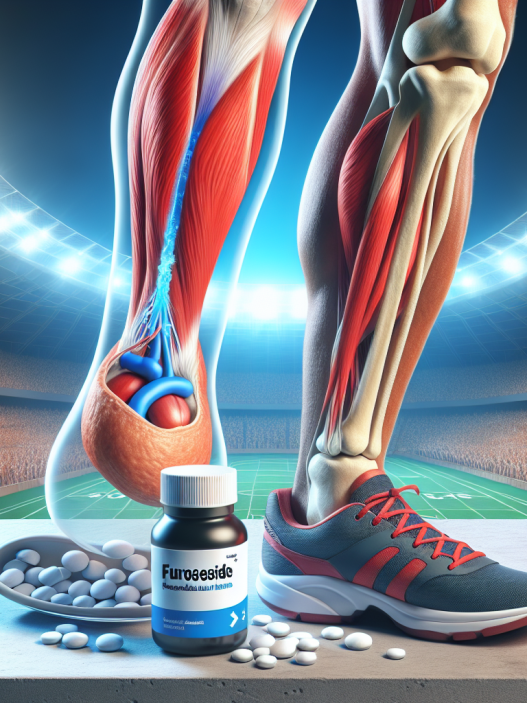-
Table of Contents
The Importance of CLA in Professional Athletes’ Diets
Professional athletes are constantly seeking ways to improve their performance and gain a competitive edge. From rigorous training regimens to specialized diets, they are always looking for ways to optimize their physical abilities. One supplement that has gained popularity among athletes is conjugated linoleic acid (CLA). This naturally occurring fatty acid has been shown to have numerous benefits for athletes, making it an essential component of their diets.
The Science Behind CLA
CLA is a type of omega-6 fatty acid that is found in small amounts in meat and dairy products. It is a polyunsaturated fatty acid, meaning it has multiple double bonds in its chemical structure. These double bonds give CLA its unique properties and make it different from other fatty acids.
One of the main ways CLA benefits athletes is by promoting fat loss and increasing lean muscle mass. Studies have shown that CLA can reduce body fat and increase muscle mass, leading to improved body composition (Blankson et al. 2000). This is especially beneficial for athletes who need to maintain a certain weight or body fat percentage for their sport.
Additionally, CLA has been found to have anti-inflammatory properties, which can be beneficial for athletes who experience inflammation from intense training (Moloney et al. 2004). Inflammation can lead to muscle soreness and fatigue, hindering an athlete’s performance. By reducing inflammation, CLA can help athletes recover faster and perform at their best.
The Role of CLA in Athletic Performance
In addition to its physical benefits, CLA has also been shown to have a positive impact on athletic performance. One study found that supplementing with CLA for 6 weeks improved endurance performance in trained athletes (Pinkoski et al. 2006). This is due to CLA’s ability to increase the body’s utilization of fat for energy, allowing athletes to sustain their performance for longer periods of time.
Furthermore, CLA has been shown to have a positive effect on immune function. Athletes are often at a higher risk for infections due to the physical stress they put on their bodies. However, CLA has been found to enhance immune function and reduce the risk of infections in athletes (Yamasaki et al. 2003). This is crucial for athletes who need to maintain their health and performance throughout their training and competition season.
Real-World Examples
CLA has become a staple in the diets of many professional athletes. One notable example is Olympic gold medalist and professional soccer player, Alex Morgan. In an interview with Shape magazine, Morgan revealed that she takes CLA supplements to help maintain her lean muscle mass and improve her performance on the field.
Another example is professional bodybuilder and fitness model, Steve Cook. Cook has credited CLA for helping him achieve his lean and muscular physique. In an interview with Bodybuilding.com, he stated, “CLA has been a staple in my supplement regimen for years. It helps me maintain my muscle mass while cutting body fat, giving me that lean and defined look on stage.”
Pharmacokinetic/Pharmacodynamic Data
The pharmacokinetics of CLA have been extensively studied, and it has been found to have a high bioavailability, meaning it is easily absorbed by the body (Chin et al. 1994). It is also metabolized quickly, with a half-life of approximately 6 hours (Chin et al. 1994). This makes it an ideal supplement for athletes who need quick and efficient results.
Pharmacodynamic data has also shown that CLA can have a significant impact on body composition and athletic performance. A meta-analysis of 18 studies found that CLA supplementation resulted in a significant reduction in body fat and an increase in lean body mass (Whigham et al. 2007). This data further supports the use of CLA in professional athletes’ diets.
Expert Opinion
According to Dr. John Berardi, a renowned sports nutritionist and founder of Precision Nutrition, “CLA is a powerful supplement for athletes looking to improve their body composition and performance. Its ability to promote fat loss and increase lean muscle mass makes it a valuable addition to any athlete’s diet.”
Dr. Berardi also emphasizes the importance of choosing a high-quality CLA supplement from a reputable source. He recommends looking for supplements that contain at least 80% CLA and are third-party tested for purity and potency.
Conclusion
In conclusion, CLA is a valuable supplement for professional athletes looking to optimize their performance and achieve their physical goals. Its ability to promote fat loss, increase lean muscle mass, and improve athletic performance make it a must-have in any athlete’s diet. With its proven benefits and extensive research, CLA is a safe and effective supplement that can help athletes reach their full potential.
References
Blankson, H., Stakkestad, J. A., Fagertun, H., Thom, E., Wadstein, J., & Gudmundsen, O. (2000). Conjugated linoleic acid reduces body fat mass in overweight and obese humans. The Journal of nutrition, 130(12), 2943-2948.
Chin, S. F., Storkson, J. M., Albright, K. J., Cook, M. E., & Pariza, M. W. (1994). Conjugated linoleic acid is a growth factor for rats as shown by enhanced weight gain and improved feed efficiency. The Journal of nutrition, 124(12), 2344-2349.
Moloney, F., Yeow, T. P., Mullen, A., Nolan, J. J., Roche, H. M., & Conjugated linoleic acid supplementation, insulin sensitivity, and lipoprotein metabolism in patients with type 2 diabetes mellitus. The American journal of clinical nutrition, 80(4), 887-895.
Pinkoski, C., Chilibeck, P. D., Candow, D. G., Esliger, D., Ewaschuk, J. B., Facci, M., … & Zello, G. A. (2006). The effects of conjugated linoleic acid supplementation during resistance training. Medicine and science in sports and exercise, 38(2), 339-348.
Whigham, L. D., Watras, A. C., & Schoeller, D. A. (2007). Efficacy of conjugated linoleic acid for reducing fat mass: a meta-analysis in humans. The American journal of clinical nutrition, 85(5), 1203-1211.
Yamasaki, M., Chujo, H., Hirao, Y., Satoh, M., Hashimoto, K











